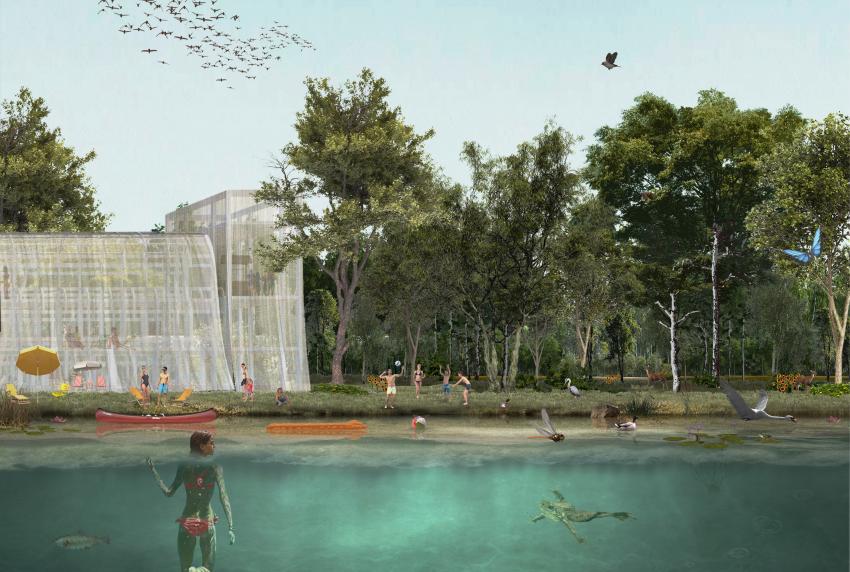OMA/Laboratorio Permanente
Milan
Italy
OMA and Laboratorio Permanente win contest to transform disused railway yards
In 2018, a competition was launched to find a master plan for the urban regeneration of two disused railway yards called Scalo Farini and San Cristiforo, both located in the centre of Milan. Now, Agenti Climatici (Climatic Agents) has been announced as the winning design, submitted by OMA’s Ippolito Pestellini Laparelli and Reinier de Graa from OMA. The land in the Concorso Farini transformation is part of an overall scheme to reuse seven yards, which together cover an area of 1.25m sqm and form the largest development planned in the city over the next 20 years.
Co-designed with Laboratorio Permanente, the Agenti Climatici proposal designates the Scalo Farini site as a green zone and the San Cristoforo site as a blue zone. Both work as ecological filters: the green zone contains a vast park which cools hot winds coming from the south-west, purifying the air from toxic particles. Meanwhile, the large basin in the blue zone cleans the groundwater and creates a welcoming landscape for both humans and animals. These two new zones regenerate the city’s ecology by providing clean air and water, addressing pollution on a metropolitan scale.
In this system, the designers conceived the public area – including water, greenery and bridges – as fixed, while the buildings are considered as more flexible and adaptable spaces. The scale of developments depends on the city’s future economic status, creating a resilient framework that can respond to the shocks of national politics and the global economy.
Ippolito Pestellini Laparelli explained this sustainable approach to urban regeneration, stating: “In a moment of dramatic environmental transformation and permanent economic uncertainty, our priorities have changed. The most valuable currency is no longer ‘brick’ – the built – but rather the climatic conditions that cities will be able to provide and ensure for their citizens. The city of the twentieth century, with its high energy consumption, must be overcome by reconsidering the principles that have marked urban development since the classical era.”
Lucy Nordberg
TenderStream Head of Research
This competition was first published by TenderStream on 23.10.2018 here
Start your free trial here or email our team directly at customerservices@tenderstream.com


